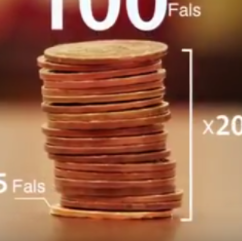It looks like you're using an Ad Blocker.
Please white-list or disable AboveTopSecret.com in your ad-blocking tool.
Thank you.
Some features of ATS will be disabled while you continue to use an ad-blocker.
share:
It's no secret they have been printing currency. Here you go
www.google.com... ter-raid-by-turkish-a6685681.html%3famp
www.dailysabah.com...
www.google.com... ter-raid-by-turkish-a6685681.html%3famp
edit on 7/29/17 by dragonridr because: (no reason given)
www.dailysabah.com...
edit on
7/29/17 by dragonridr because: (no reason given)
a reply to: St Udio
It would be wonderful if there was any possibility you could just copy/paste that summary here?? You don't need to link it, as I assume it is from a subscription service. But if there is any way at all you can simply present us with the substance of the article, I would love to read it.
I am looking at those dirham, with precision of these strikes to effectively reproduce those raised centers and rims. This stuff is being stamped en-mass with highly accurate tolerances.
a reply to: dragonridr
Woah, thats a serious operation.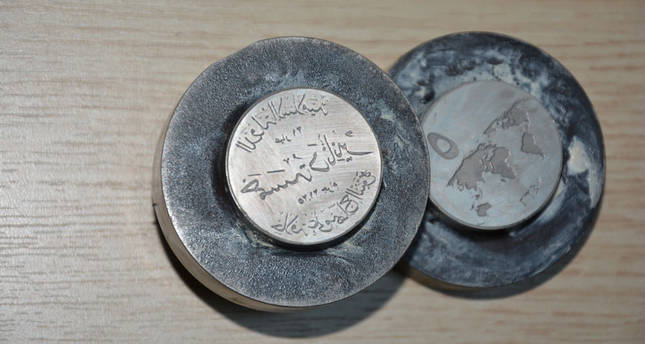
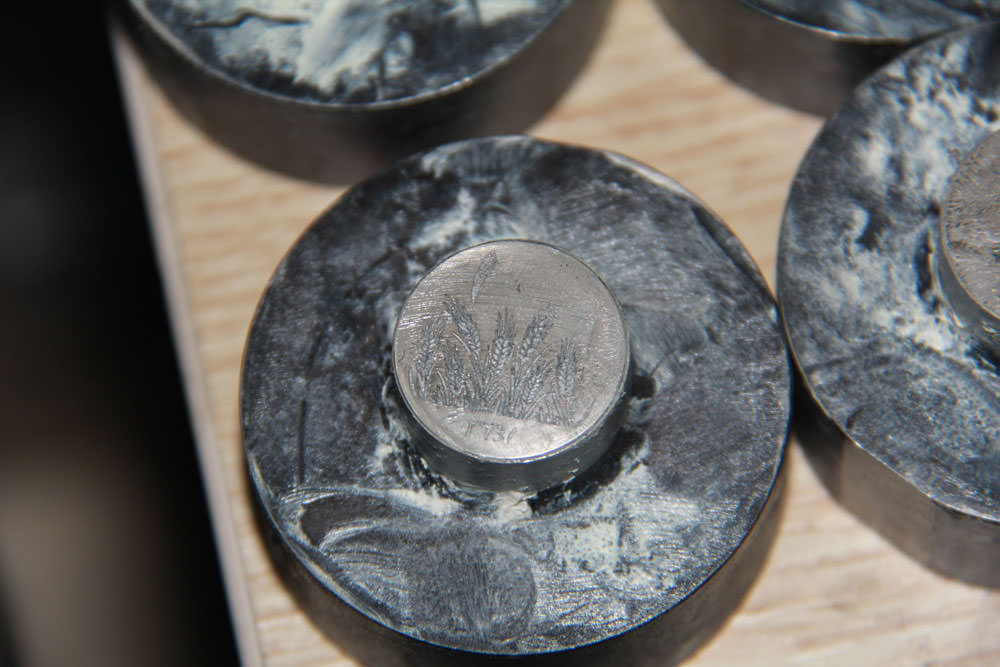
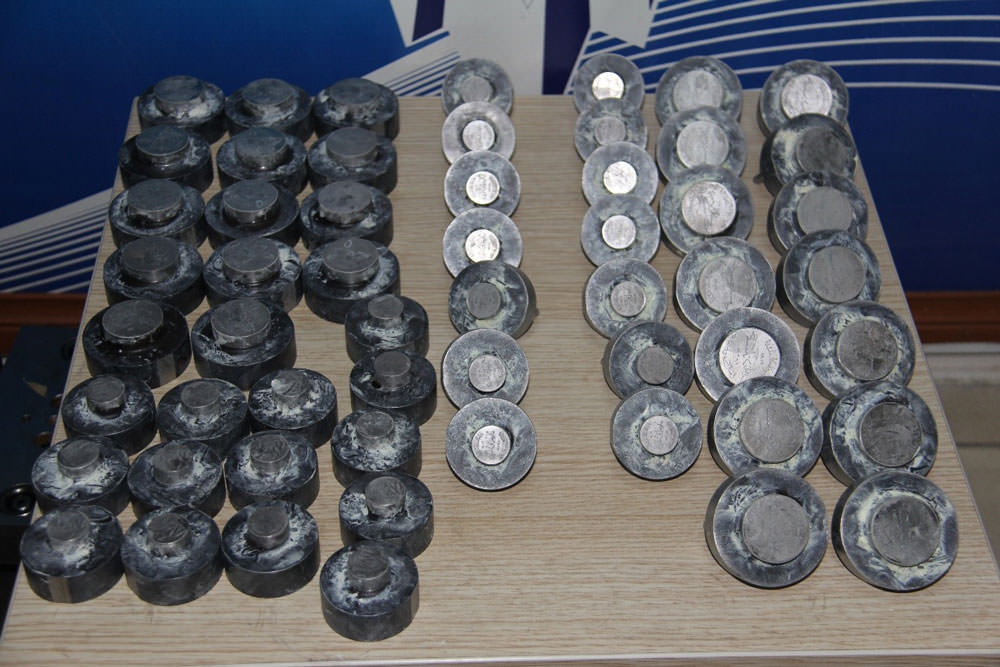
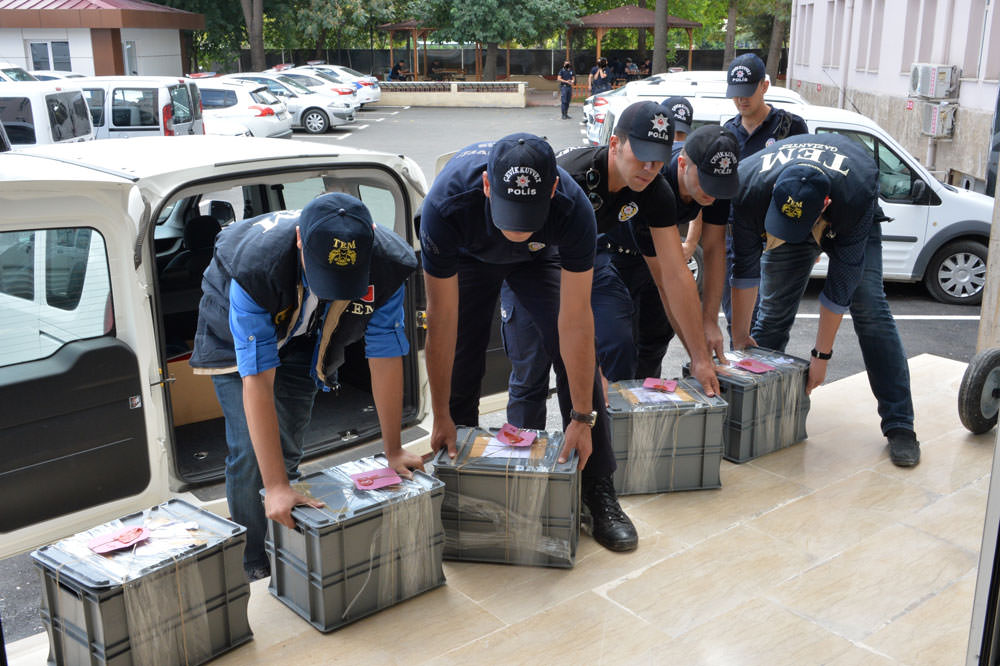
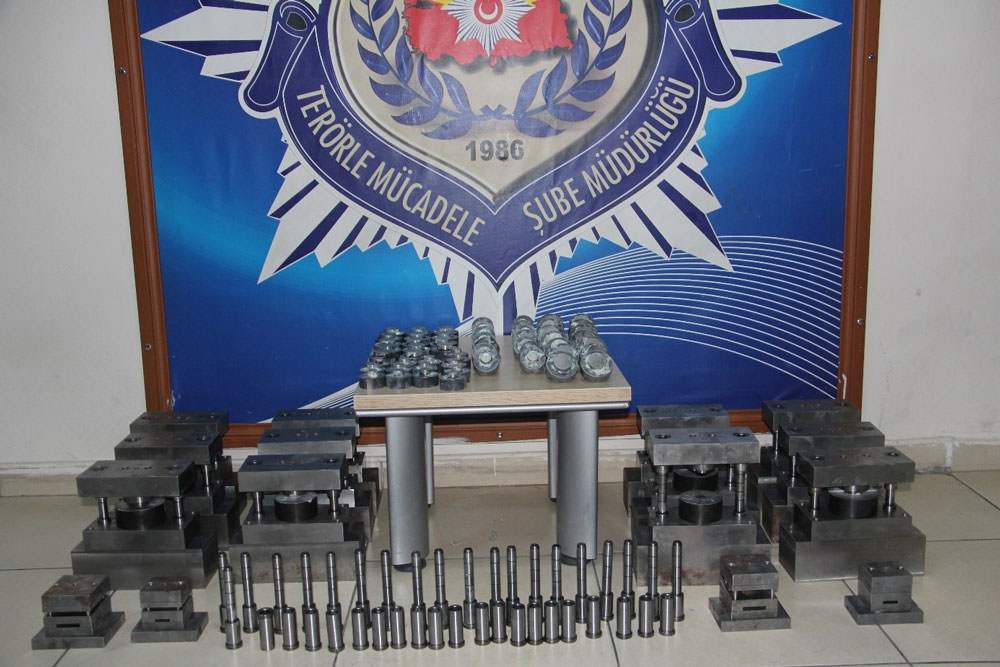
It just seems to me that is a lower volume op with less tight tolerances than what the video was showing. I wonder if they have upgraded to an automated production line with the highest tolerances for repeated accurate strikes. Because that is how the new ones appear with those rims and detail.
I think that we should send Marines and JSOC together to go seize this bullion production facility. If we can cut them off there, no economy = no resistance. I do suspect they have moved these facilities in mountains of a sympathetic player.
Pakistan is definitely a possibility considering the ISI had covered up Osama's alleged location there. I am guessing Afghanistan as well with how they referenced it and the Taliban.
It would be wonderful if there was any possibility you could just copy/paste that summary here?? You don't need to link it, as I assume it is from a subscription service. But if there is any way at all you can simply present us with the substance of the article, I would love to read it.
I am looking at those dirham, with precision of these strikes to effectively reproduce those raised centers and rims. This stuff is being stamped en-mass with highly accurate tolerances.
a reply to: dragonridr
Woah, thats a serious operation.





It just seems to me that is a lower volume op with less tight tolerances than what the video was showing. I wonder if they have upgraded to an automated production line with the highest tolerances for repeated accurate strikes. Because that is how the new ones appear with those rims and detail.
I think that we should send Marines and JSOC together to go seize this bullion production facility. If we can cut them off there, no economy = no resistance. I do suspect they have moved these facilities in mountains of a sympathetic player.
Pakistan is definitely a possibility considering the ISI had covered up Osama's alleged location there. I am guessing Afghanistan as well with how they referenced it and the Taliban.
a reply to: enlightenedservant
Dont forget drugs! Most of the US's "Opiate Epidemic" originates in Afghanistan.
They've been selling massive amounts of oil for years now & they've also been selling all kinds of other goods, from contraband & antiquities to people/slaves.
Dont forget drugs! Most of the US's "Opiate Epidemic" originates in Afghanistan.
a reply to: Brian4real
Yeah but that was long before ISIS was even created. In fact, the Taliban had completely shut down opiate production before 9/11 & it was the following Western invasion of Afghanistan that rekindled it.
The US in particular helped w/the opium production in the Helmand Province of Afghanistan, literally having US troops protect the fields. The narrative was that the opium would help the local farmers get out of debt w/the Taliban, help the province's leadership be completely self sufficient (economically), and get closer w/its new western allies. This was part of the whole "win their hearts & mind" effort.
"Coincidentally", opium production was back to pre-Taliban levels only a few years after the invasion & occupation began. This was years before ISIS's original faction was created.
Yeah but that was long before ISIS was even created. In fact, the Taliban had completely shut down opiate production before 9/11 & it was the following Western invasion of Afghanistan that rekindled it.
The US in particular helped w/the opium production in the Helmand Province of Afghanistan, literally having US troops protect the fields. The narrative was that the opium would help the local farmers get out of debt w/the Taliban, help the province's leadership be completely self sufficient (economically), and get closer w/its new western allies. This was part of the whole "win their hearts & mind" effort.
"Coincidentally", opium production was back to pre-Taliban levels only a few years after the invasion & occupation began. This was years before ISIS's original faction was created.
a reply to: enlightenedservant
My brother was one of those Marines. I just did a post ranting about the same issue
www.abovetopsecret.com...
Check it out if you got a min. If you want any of the links, lmk and ill send them to you cuz I dont think theyre working.
My brother was one of those Marines. I just did a post ranting about the same issue
www.abovetopsecret.com...
Check it out if you got a min. If you want any of the links, lmk and ill send them to you cuz I dont think theyre working.
originally posted by: enlightenedservant
a reply to: Brian4real
Yeah but that was long before ISIS was even created. In fact, the Taliban had completely shut down opiate production before 9/11 & it was the following Western invasion of Afghanistan that rekindled it.
The US in particular helped w/the opium production in the Helmand Province of Afghanistan, literally having US troops protect the fields. The narrative was that the opium would help the local farmers get out of debt w/the Taliban, help the province's leadership be completely self sufficient (economically), and get closer w/its new western allies. This was part of the whole "win their hearts & mind" effort.
"Coincidentally", opium production was back to pre-Taliban levels only a few years after the invasion & occupation began. This was years before ISIS's original faction was created.
No the talibahn didn't eliminate opium. That's fake news they had total control over it. As the US operation continues they lose their hold on the opium trade. If you had been to afganistan you would relive these families have been growing poppy for hundreds of years. To them nothing changes unless someone comes by and burns your field.
The Talibahn were smart they would simply theaten to kill you for a cut of the profits. Of course in a village there is always resistance so they go after a farmer cut off his families heads. Then the others fall in line and give 59 peecent of what they produce.
When the US was there the Talibahn couldn't exert this level of control.
a reply to: dragonridr
Nope. In 2000, Mullah Omar issued a fatwa that ruled that growing opium was against Islam (which the Taliban had previously done in 1994 but rescinded in 1996-ish). You're calling it "fake news", yet in 2001 it was reported & confirmed all over the world by the UN & US narcotics experts. And non-ironically, the Western sources kept pushing the narrative that it was destroying the livelihoods of thousands of farmers.
Taliban's Ban On Poppy A Success, U.S. Aides Say
World's opium source destroyed
Yet here's another Western news source's reporting from February of 2002, just 5 months after we invaded Afghanistan:
Afghanistan's real war: Poppy and poverty
Even PBS was saying the same things in January of 2002 (HERE):
No offense, but if you can't show me any proof of your claims, then I'm going to stick with what I know to be true about the situation.
Nope. In 2000, Mullah Omar issued a fatwa that ruled that growing opium was against Islam (which the Taliban had previously done in 1994 but rescinded in 1996-ish). You're calling it "fake news", yet in 2001 it was reported & confirmed all over the world by the UN & US narcotics experts. And non-ironically, the Western sources kept pushing the narrative that it was destroying the livelihoods of thousands of farmers.
Taliban's Ban On Poppy A Success, U.S. Aides Say
The first American narcotics experts to go to Afghanistan under Taliban rule have concluded that the movement's ban on opium-poppy cultivation appears to have wiped out the world's largest crop in less than a year, officials said today.
The American findings confirm earlier reports from the United Nations drug control program that Afghanistan, which supplied about three-quarters of the world's opium and most of the heroin reaching Europe, had ended poppy planting in one season.
But the eradication of poppies has come at a terrible cost to farming families, and experts say it will not be known until the fall planting season begins whether the Taliban can continue to enforce it.
World's opium source destroyed
But this year things are different. In a development that has gone unnoticed and unrewarded by the international community, Afghanistan's fundamentalist Taliban rulers have dramatically ended the country's massive opium trade, The Observer can reveal - a move that has also plunged Hadda's farmers into despondency and debt.
Western sources in Kabul yesterday confirmed poppy production in Afghanistan had virtually ceased. This follows an edict issued last year by the Taliban's reclusive leader, Mullah Mohammed Omar, declaring opium to be un-Islamic.
Yet here's another Western news source's reporting from February of 2002, just 5 months after we invaded Afghanistan:
Afghanistan's real war: Poppy and poverty
Until 2000, Afghanistan was the world's main producer of opium poppies -- not any more, after its interim leader issued a decree banning its production.
The ban comes after Pakistani drug agents intercepted one of the largest seizures of Afghan heroin exiting the country.
Hamid Karzai's decree may have renewed a ban issued by the former Taliban leadership in 2000, yet the U.N. drugs body less than a month ago reported that poppy cultivation had resumed and was extensive among desperate farmer families.
Even PBS was saying the same things in January of 2002 (HERE):
Then in late 1999/2000, they changed their mind and brought in a new ban, a very comprehensive ban and cultivation crashed by 90 percent. This was arguably the largest policy-driven reduction of any cultivation anywhere in the world, [but also severely depressed economic prospects in the country].
Why did the Taliban decide to ban poppy again in 1999/2000?
While they controlled much of Afghanistan at the time, no international governments except Saudi Arabia, the United Arab Emirates and Pakistan recognized them. But they really wanted international recognition.
Throughout the 1990s, the U.N. had told them to eradicate opium, so they essentially banked on the idea that if they suppressed cultivation, they would then get international recognition as the official government in Afghanistan and a seat at the U.N.
The ban worked because the population at this point was totally intimidated by them, and the government had promised they would reap economic goodies from the international community to offset the losses. But these goodies never materialized, and a few months down the road, you had massive economic catastrophe happening in Afghanistan — drops of income by 95 percent, starvation conditions, huge debt for many people, and in some instances, even “opium brides,” young girls given to money lenders when their families could not replay loans.
No offense, but if you can't show me any proof of your claims, then I'm going to stick with what I know to be true about the situation.
edit on 30-7-2017 by enlightenedservant because: screwed up a link. hmph
a reply to: Brian4real
Thanks. That was a good read & I replied in that thread, too. To get an even better idea of the depth of this opium situation, try reading up on the "Opium Wars" against Imperial China in the 1800s. This is a great article that goes into shockingly candid detail about them.
The Opium Wars: The Bloody Conflicts That Destroyed Imperial China
ETA: For the record, I'm not implying that ISIS isn't involved in the drug trade. I've actually considered them to be the same as the Latin American drug cartels, even down to the same horrifying executions. So I wouldn't be surprised in the least if they were also selling drugs since I know they sell other trafficked goods. I was just pointing out that the opium issue existed long before ISIS & will continue even when the next "Al Qaeda/Al Nusra/ISIS" is created.
Thanks. That was a good read & I replied in that thread, too. To get an even better idea of the depth of this opium situation, try reading up on the "Opium Wars" against Imperial China in the 1800s. This is a great article that goes into shockingly candid detail about them.
The Opium Wars: The Bloody Conflicts That Destroyed Imperial China
ETA: For the record, I'm not implying that ISIS isn't involved in the drug trade. I've actually considered them to be the same as the Latin American drug cartels, even down to the same horrifying executions. So I wouldn't be surprised in the least if they were also selling drugs since I know they sell other trafficked goods. I was just pointing out that the opium issue existed long before ISIS & will continue even when the next "Al Qaeda/Al Nusra/ISIS" is created.
edit on 30-7-2017 by enlightenedservant because: (no reason given)
a reply to: Tranceopticalinclined
They don't live in a vacuum. Ford products are sold all over the world including the Middle East. Weapons are a dime a dozen in every country but perhaps even more so in that region because of all the outsiders coming in and then leaving but not always taking what they brought in to the region.
I know what your point is, and to a certain extent I believe it but people think those people are in a desert with nothing and its just not true. They have almost everything we have so uniforms, trucks, weapons are not any issue at all for them...Amazon delivers and so do every other store on the planet as long as you have enough cash.
They don't live in a vacuum. Ford products are sold all over the world including the Middle East. Weapons are a dime a dozen in every country but perhaps even more so in that region because of all the outsiders coming in and then leaving but not always taking what they brought in to the region.
I know what your point is, and to a certain extent I believe it but people think those people are in a desert with nothing and its just not true. They have almost everything we have so uniforms, trucks, weapons are not any issue at all for them...Amazon delivers and so do every other store on the planet as long as you have enough cash.
www.abovetopsecret.com...
previous thread on topic
news article; mint in Turkey
www.thetimes.co.uk...
article requires registration, sorry
other article
www.independent.co.uk... a6685681.html
previous thread on topic
news article; mint in Turkey
www.thetimes.co.uk...
Turkish police have found an illegal mint that was making currency for the self-declared Islamic State caliphate.
Pressing equipment and boxes full of newly minted coins were seized in the raid yesterday morning in the southeastern city of Gaziantep. Six foreign nationals were arrested.
The currency, which Isis has declared as the only legal tender in its territory, was due to be smuggled over the border into Syria. The terror group controls a 50-mile stretch of the border to the southeast of Gaziantep to smuggle fighters, weapons and oil in and out of the country.
Isis first revealed its new currency — gold dinars, silver dirhams and copper fulus — in August in a promotional video. The group said that it was part of its plan for
article requires registration, sorry
edit on 30-7-2017 by ElGoobero because: add useful info
other article
www.independent.co.uk... a6685681.html
Turkish authorities have seized an illegal mint making currency for Isis.
Pressing equipment and dozens of newly minted coins were seized by police in the southeastern city of Gaziantep near the border with Syria during a raid on Wednesday morning.
Six foreign nationals were arrested and have been remanded in custody, The Times reports.
Isis currently controls a 50-mile stretch along the Turkish-Syrian border to the south of the city and the currency has been declared the only legal tender in its territory.
The terrorist group first revealed their new currency in a propaganda video in August.
They said it was part of plan to undermine "America’s capitalist financial system of enslavery."
edit on 30-7-2017 by ElGoobero because:
add useful info
a reply to: ElGoobero
The ban was just price manipulation. Opium is very easy to store in deserts. By making it look like they cut back production the price increased. By the way the person that started that fatwa was latter arrested on a drug raid so I guess he didn't think it was anti islamic.
So here you go this talks about the taliban and their fake war on drugs.
edition.cnn.com...
PS I suggest you look at the amount of heroine in the world market it didn't drop at all. But yet Afghanistan was producing 98 percent at the time. All they did was stockpile it until 9 months later.
The ban was just price manipulation. Opium is very easy to store in deserts. By making it look like they cut back production the price increased. By the way the person that started that fatwa was latter arrested on a drug raid so I guess he didn't think it was anti islamic.
So here you go this talks about the taliban and their fake war on drugs.
edition.cnn.com...
PS I suggest you look at the amount of heroine in the world market it didn't drop at all. But yet Afghanistan was producing 98 percent at the time. All they did was stockpile it until 9 months later.
edit on 7/31/17 by dragonridr because: (no reason given)
just more info. for those who are following the story of ISIS issued gold dinars etc.
www.independent.co.uk... 0121.html
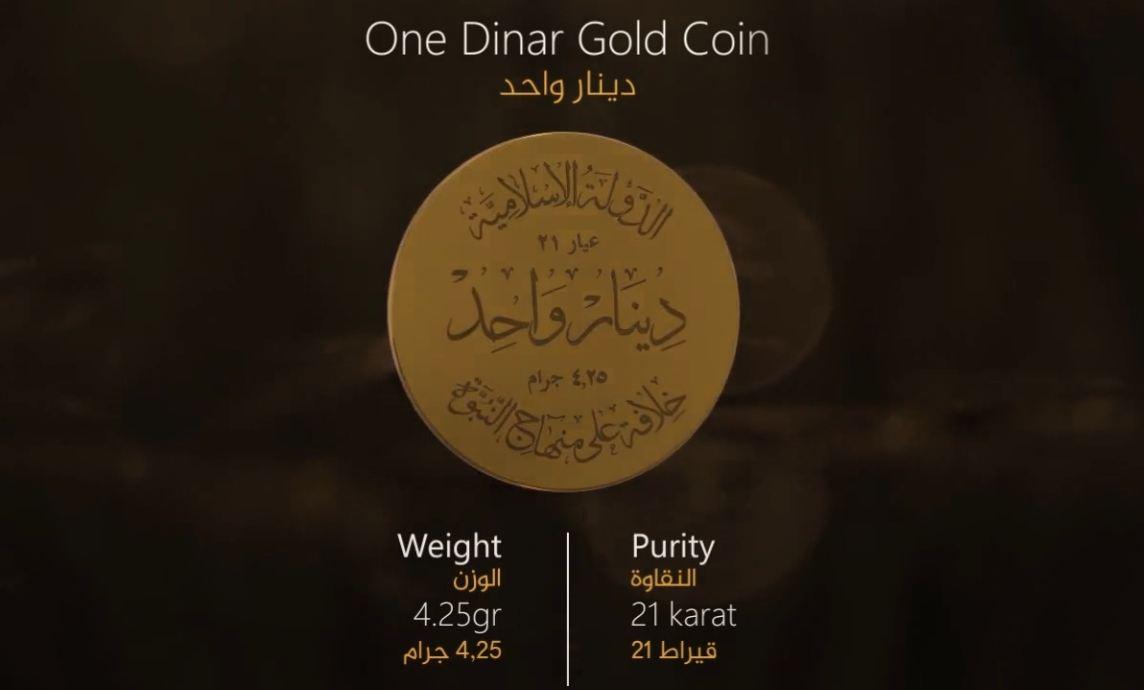
to me, the coin blank was freehand etched instead of being minted by an expensive Die
magnify the image to see that the coin is not a Troy Ounce nor 24 Karat... it's only approx. 4 grams worth about $140 USD or worth about as much as a 1/10th ounce USA Gold Eagle @ $130.
the article states this release was via the Propaganda Arm of Daesh...
the Caliphate Coins are designed to potentially upset the USA Dollar supremacy in the region & ultimately the world
BUT...
it is noted in the article text:
this prototype coin(s) are promotional propaganda only,
with high expectations that maybe a Turk or Iranian Caliphate in the future will progress the coinage into Mass Production & Wide Circulation
that's my view & i'm sticking to it
 presented by worldstarcountry
presented by worldstarcountry
the die photo you posted, looks exactly like the image i got from the linked site in my post
so, perhaps the coin is struck rather than engraved, or at least tried to be proofed...
thanks
www.independent.co.uk... 0121.html

to me, the coin blank was freehand etched instead of being minted by an expensive Die
magnify the image to see that the coin is not a Troy Ounce nor 24 Karat... it's only approx. 4 grams worth about $140 USD or worth about as much as a 1/10th ounce USA Gold Eagle @ $130.
the article states this release was via the Propaganda Arm of Daesh...
the Caliphate Coins are designed to potentially upset the USA Dollar supremacy in the region & ultimately the world
BUT...
it is noted in the article text:
Yet despite the group having made such claims since November last year, it still pays its footmen in US dollars, receives funding from selling oil fields it controls in dollars, and accepts extorted taxation and hostage money in dollars.
this prototype coin(s) are promotional propaganda only,
with high expectations that maybe a Turk or Iranian Caliphate in the future will progress the coinage into Mass Production & Wide Circulation
that's my view & i'm sticking to it

the die photo you posted, looks exactly like the image i got from the linked site in my post
so, perhaps the coin is struck rather than engraved, or at least tried to be proofed...
thanks
edit on st31150151027731112017 by St Udio because: (no reason given)
a reply to: worldstarcountry
you are SERIOUSLY overstating the engineering requirements for producing coins
you are SERIOUSLY overstating the engineering requirements for producing coins
a reply to: St Udio
That photo is the coins presented from the 2014 bust in Turkey. I posted them to show the contrast by what was previously seized, and what is currently being presented in the video.
Compare them to these coins here from the opening post:
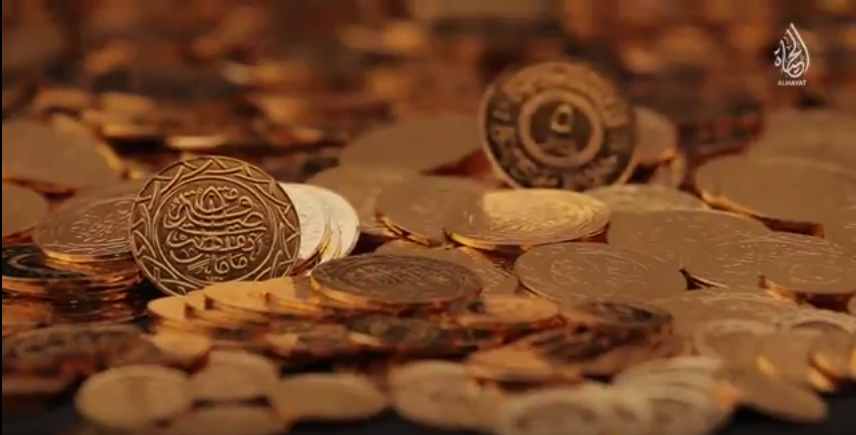
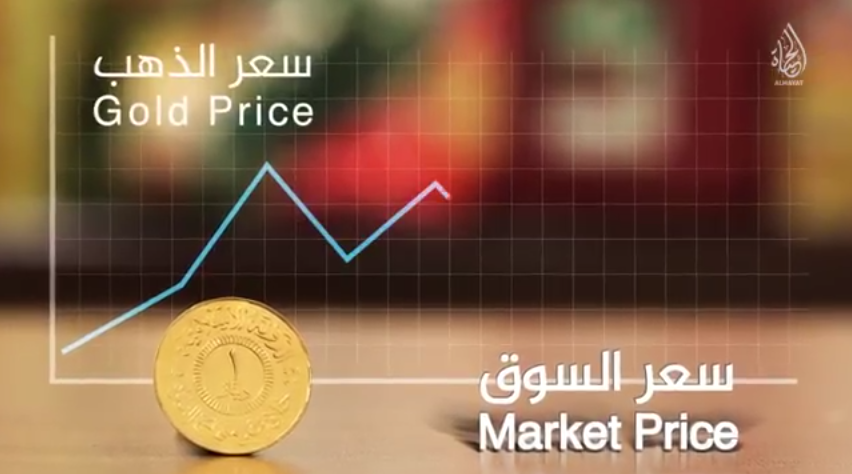
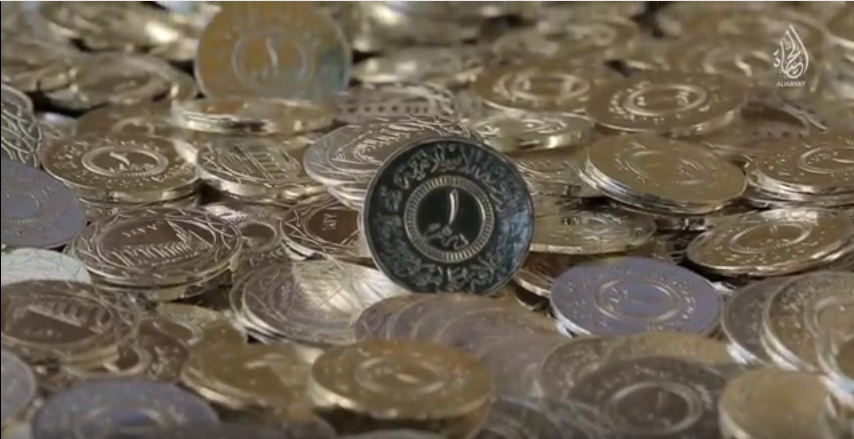
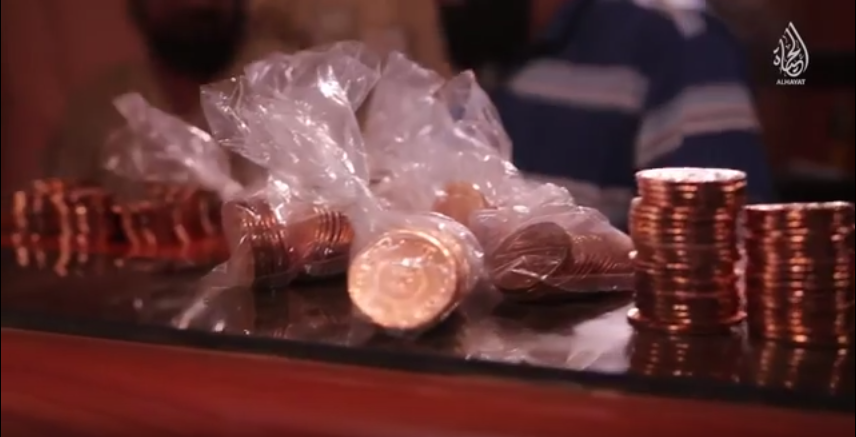
Producing generic looking hand graved coins as what was seized in 2014 Turkey is no feat or challenge. These are not the same coins, and have an entirely different design from what I can see. Including that radial raised (or depressed) impression in the center of all three coins. That is not from the simple operations and equipment seized in Turkey in 2014. These are of superior strikes and likely a mechanized operation if they have any sufficient quantities.




Also note that while the article you cited explains they had a fixed value for the gold dinar in a 1/10 fractional, their new statement and recently taken down video have pegged it to the market price of gold. They have changed their pricing and the quality of the strikes have improved since the images previously presented 2-3 years ago.
It is of my opinion they have found a state sponsor to strike their coins based on what they are now circulating, not based on the hand engraved small quantities seized in 2014.
That photo is the coins presented from the 2014 bust in Turkey. I posted them to show the contrast by what was previously seized, and what is currently being presented in the video.
Compare them to these coins here from the opening post:




Producing generic looking hand graved coins as what was seized in 2014 Turkey is no feat or challenge. These are not the same coins, and have an entirely different design from what I can see. Including that radial raised (or depressed) impression in the center of all three coins. That is not from the simple operations and equipment seized in Turkey in 2014. These are of superior strikes and likely a mechanized operation if they have any sufficient quantities.




Also note that while the article you cited explains they had a fixed value for the gold dinar in a 1/10 fractional, their new statement and recently taken down video have pegged it to the market price of gold. They have changed their pricing and the quality of the strikes have improved since the images previously presented 2-3 years ago.
It is of my opinion they have found a state sponsor to strike their coins based on what they are now circulating, not based on the hand engraved small quantities seized in 2014.
edit on 7-31-2017 by worldstarcountry because: (no reason given)
a reply to: ignorant_ape
I already pointed out that a simple google search for "coin producing equipment" showed models ranging from less than $2,000 to more than $10,000. That's chump change to ISIS/Daesh. For context, these articles from 2015 claim ISIS was making $40 million to $50 million a month just from its oil sales (THIS and THIS). And that doesn't include any of their other forms of revenue, like extortion/"protection money", slave dealing, etc.
So even if the really good coin making equipment was 100 times more than the prices I mentioned above, it would still cost less than 1 day's oil revenue for them.
I already pointed out that a simple google search for "coin producing equipment" showed models ranging from less than $2,000 to more than $10,000. That's chump change to ISIS/Daesh. For context, these articles from 2015 claim ISIS was making $40 million to $50 million a month just from its oil sales (THIS and THIS). And that doesn't include any of their other forms of revenue, like extortion/"protection money", slave dealing, etc.
So even if the really good coin making equipment was 100 times more than the prices I mentioned above, it would still cost less than 1 day's oil revenue for them.
a reply to: enlightenedservant
I saw some of that equipment. Only the most expensive models would even come close to achieving the strikes and volume seen on these new releases, and I assume that type of machinery would have some kind of export/import restrictions.
I tried finding laws related to the sale/export of coin stamping machinery, but am not having much luck. The search results usually come back to cases and citations about the illegal production of currency as legal tender and such.
I am familiar with a very experienced and established numismatist in town who knows his coins better than anybody I have ever met. I am going to print out these pictures and get his opinion.
The coins that were displayed this weekend are levels above what was shown years ago and use more sophisticated machinery than the hammer and engraving methods. Even then the volumes shown were quite low as a result of the methods.
Even pressed bullion from private mints are subject to heavy regulatory oversight, including the acquisition of those machines. I think it is important to not understate the quality of these strikes and the resources and backing needed to produce them.
Assuming they are in fact striking these themselves with open market machines, there has to be a way to trace back the types of machines and the origins by analyzing these coins under the scope. Similar to using forensics to identify the type of printer used to print a document or image based on the dot patterns and such.
I saw some of that equipment. Only the most expensive models would even come close to achieving the strikes and volume seen on these new releases, and I assume that type of machinery would have some kind of export/import restrictions.
I tried finding laws related to the sale/export of coin stamping machinery, but am not having much luck. The search results usually come back to cases and citations about the illegal production of currency as legal tender and such.
I am familiar with a very experienced and established numismatist in town who knows his coins better than anybody I have ever met. I am going to print out these pictures and get his opinion.
The coins that were displayed this weekend are levels above what was shown years ago and use more sophisticated machinery than the hammer and engraving methods. Even then the volumes shown were quite low as a result of the methods.
Even pressed bullion from private mints are subject to heavy regulatory oversight, including the acquisition of those machines. I think it is important to not understate the quality of these strikes and the resources and backing needed to produce them.
Assuming they are in fact striking these themselves with open market machines, there has to be a way to trace back the types of machines and the origins by analyzing these coins under the scope. Similar to using forensics to identify the type of printer used to print a document or image based on the dot patterns and such.
a reply to: worldstarcountry
Are you overlooking the fact that they make an estimated $40-$50 million a month just from oil sales? And that almost their entire business model centers around the illegal business deals, from their illegal oil deals & human trafficking to things like the smuggling of antiquities and the collection of protection money.
To put it plainly, their underworld dealings are like the Mafia or the Sinaloa Cartel. But would it strike you as unrealistic to see that organized crime groups can easily get their hands on currency printing equipment? Organized crime groups from all over the world routinely get the equipment to counterfeit even the most advanced global currencies, yet you seem to think it's impossible for ISIS-Daesh to get their hands on less sophisticated equipment.
Chinese companies can illegally get the equipment to make counterfeit versions of popular cars, yet simple coin manufacturing is supposed to be too advanced? Like I said in my last post, even if good coin making equipment cost 100 times more than the prices I saw in my google search, it would still equal less than a single day's worth of oil revenue for ISIS. If they were just some broke & unsophisticated chumps in the desert, they'd have been defeated by now.
It sounds like you're assuming that only a few countries can create coin making equipment in the first place. Iraq & China were printing Iraqi money from 1991 until our 2003 invasion (HERE). From then on, the England-based company De La Rue has been printing Iraqi money (found in the same article). So who's to say that ISIS-Daesh didn't simply get their hands on some of the pre-2003 Iraq coin making equipment? I honestly don't even think they'd have to go that far, seeing as the have enough money to just buy equipment outright.
ETA: Here's a video of an illegal coin operation in India. They got raided & you can see that the equipment looks really cheap:
Are you overlooking the fact that they make an estimated $40-$50 million a month just from oil sales? And that almost their entire business model centers around the illegal business deals, from their illegal oil deals & human trafficking to things like the smuggling of antiquities and the collection of protection money.
To put it plainly, their underworld dealings are like the Mafia or the Sinaloa Cartel. But would it strike you as unrealistic to see that organized crime groups can easily get their hands on currency printing equipment? Organized crime groups from all over the world routinely get the equipment to counterfeit even the most advanced global currencies, yet you seem to think it's impossible for ISIS-Daesh to get their hands on less sophisticated equipment.
Chinese companies can illegally get the equipment to make counterfeit versions of popular cars, yet simple coin manufacturing is supposed to be too advanced? Like I said in my last post, even if good coin making equipment cost 100 times more than the prices I saw in my google search, it would still equal less than a single day's worth of oil revenue for ISIS. If they were just some broke & unsophisticated chumps in the desert, they'd have been defeated by now.
Only the most expensive models would even come close to achieving the strikes and volume seen on these new releases, and I assume that type of machinery would have some kind of export/import restrictions
It sounds like you're assuming that only a few countries can create coin making equipment in the first place. Iraq & China were printing Iraqi money from 1991 until our 2003 invasion (HERE). From then on, the England-based company De La Rue has been printing Iraqi money (found in the same article). So who's to say that ISIS-Daesh didn't simply get their hands on some of the pre-2003 Iraq coin making equipment? I honestly don't even think they'd have to go that far, seeing as the have enough money to just buy equipment outright.
ETA: Here's a video of an illegal coin operation in India. They got raided & you can see that the equipment looks really cheap:
edit on 31-7-2017 by enlightenedservant because: (no reason given)
new topics
-
The Cost of True Discipleship—Count the Cost
Religion, Faith, And Theology: 2 hours ago -
population madness
New World Order: 4 hours ago -
Mass UAP events. DC. Machester Airport, UFOs over sub base in CT, Nuke bases.
Aliens and UFOs: 4 hours ago -
Thanking a rosemary plant
General Chit Chat: 8 hours ago -
Unidentified Flying Objects Over U.S. Military Bases in Northeast UK, as of roughly 11 a.m. CST.
Aliens and UFOs: 9 hours ago
top topics
-
Unidentified Flying Objects Over U.S. Military Bases in Northeast UK, as of roughly 11 a.m. CST.
Aliens and UFOs: 9 hours ago, 9 flags -
Can someone please translate Biden's speech?
US Political Madness: 17 hours ago, 8 flags -
Turkey Day Rhyme…
Short Stories: 16 hours ago, 6 flags -
Thanking a rosemary plant
General Chit Chat: 8 hours ago, 6 flags -
Mass UAP events. DC. Machester Airport, UFOs over sub base in CT, Nuke bases.
Aliens and UFOs: 4 hours ago, 5 flags -
Ben Habib has Left Reform UK
Regional Politics: 16 hours ago, 4 flags -
Holy Cow! Erm...Six Legged Turkey!!
World Sports: 13 hours ago, 2 flags -
population madness
New World Order: 4 hours ago, 2 flags -
The Cost of True Discipleship—Count the Cost
Religion, Faith, And Theology: 2 hours ago, 0 flags
active topics
-
Mass UAP events. DC. Machester Airport, UFOs over sub base in CT, Nuke bases.
Aliens and UFOs • 8 • : TheValeyard -
Unidentified Flying Objects Over U.S. Military Bases in Northeast UK, as of roughly 11 a.m. CST.
Aliens and UFOs • 20 • : TheValeyard -
-@TH3WH17ERABB17- -Q- ---TIME TO SHOW THE WORLD--- -Part- --44--
Dissecting Disinformation • 3410 • : RelSciHistItSufi -
Vladimir Putin's speech at the meeting of the CSTO Collective Security Council
World War Three • 66 • : alldaylong -
population madness
New World Order • 4 • : Astrocometus -
Ben Habib has Left Reform UK
Regional Politics • 7 • : gortex -
Russia Ukraine Update Thread - part 3
World War Three • 6893 • : Arbitrageur -
The Cost of True Discipleship—Count the Cost
Religion, Faith, And Theology • 0 • : TheGoodNews -
How many people, in GENERAL, are musically inclined?
Music • 27 • : Huronyx -
Traveling the world with no passport
Social Issues and Civil Unrest • 13 • : chr0naut

